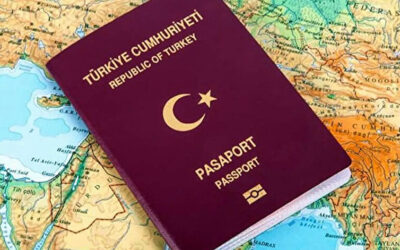
Turkish Inheritance Law- Summary
-
Status of Adulterines (illegitimate child)?
The adulterines have the same status as the children born in legitimate marriage in certain circumstances.
-
The Title by Descents of Alive Spouse?
Title by descents of alive spouse is determined in accordance to other inheritors’ status.
-
Inheritance Tax?
Any immovable property of the deceased person is subject to inheritance tax in accordance with legal regulations in Turkey.
The value of inheritance tax in Turkey is relatively low compared to other countries in the European Union, and varies according to the value of the investor’s property, i.e. the lower the price of the property is taxed by a lower percentage. The inheritance tax rate varies from 1% to 30% depending on the residence status of the heir and the geographical location of the property. The following table shows the rates of inheritance tax based on the value of the property in Turkish Lira:
TAX BASE, TL TAX RATE Up to 160,000 1%
160,000 – 510,000 3%
510,000 – 1,280,000 5%
1,280,000 – 2,780,000 7% Over 2,780,000 10%
-
What inheritance laws apply in Turkey?
Inheritance of real property in Turkey is subject to Turkish law
If the estate of the deceased includes immovable property in Turkey, then Turkish Law is applied, whereas movable assets are subject to the deceased´s national law.
Religion, gender or nationality has no effect on jurisdictions concerning inheritance issues.
In the absence of a will, statutory heirs and shares are specified by the Civil Code:
In cases of intestacy, the entire estate is distributed between the heirs as follows:• The first statutory heirs are the children of the deceased.
• In the absence of children, the parents of the deceased are the statutory heirs.
• If the parents are dead, the grandparents of the deceased and their offspring are the statutory heirs.
• If the spouse of the deceased is included with children in the sharing of the inheritance, then he/she has a statutory share of one-fourth.
• A spouse who is sharing the inheritance with the deceased´s father, mother, and their offspring has a statutory share of one half.
• A spouse who is sharing the inheritance with the deceased´s grandfather, grandmother, and their offspring has a statutory share of three-fourths.
• If none of the deceased´s next of kin survives, the entire estate goes to the surviving spouse.
• If the deceased leaves no surviving heirs, the estate becomes the property of the State. -
Is There A Reserved Portion in Turkish Law?
There is a reserved portion in Turkish Law.
A testator is not at liberty to dispose of an estate in the way that he/she wishes. Turkish law imposes restrictions on his/her freedom for the benefit of relatives. The reserved portion is a proportion of the statutory share to which each statutory heir is entitled by intestate succession. Whether or not the reserved portion is applied to the estates of foreigners and members of different religions is defined above. Reserved portions are defined according to Turkish Civil Code as follows:Children – 75% of the statutory share
Father and Mother – 50% of the statutory share
Brother and Sister – 25% of the statutory share
Surviving spouse with no children – 50% of the statutory share -
Is It Possible to Make a Will in Turkey?
It is normal to make a will in the Republic of Turkey.
Foreigners who wish to bequeath real property in Turkey should make a will in the form specified by the Turkish Civil Code. A foreign will which does not comply with Turkish law may be invalid in Turkey. -
How is the step of inheritance procedure?
Inheritance procedures are of importance, especially when an immovable found in Turkey, is the subject of course. Firstly, you must obtain a certificate of inheritance. Certificate of inheritance is an official document, which demonstrates the inheritors and their distributive shares. This document may be obtained by applying to the Public Notary or by applying to the relevant Civil Court of Peace. In practice, Public Notaries tend to be very restrictive towards foreigners for obtaining the certificate of inheritance. Therefore, it is more convenient to apply to the court.
Application to the court may be done by the submission of a pleading. As regards to this, receiving legal assistance is advisable. In a case of this type, there is no respondent party and the case usually lasts one month.
-
How is the partition of heritage carried out?
After conducting a search, the Court would address the inheritors and their shares according to the articles of succession of the Turkish Civil Code. In this procedure, the Court may ask the claimant to submit documents relating to the marriage or birth records in relation to the status of the claimant or may ask to hear witness testimonies.
-
What happens when an immovable in Turkey is of concern?
In disputes involving foreign element, the applicable law and jurisdiction may vary. But when an immovable in Turkey is of concern, as an issue of public policy, the applicable law would be Turkish law and the competent authority would be the relevant one at the location of the immovable.
By obtaining the Certificate of Inheritance, you may ask for the transfer of the ownership of an immovable at the relevant Land Registry Office along with the other inheritors. At this point, it should be kept in mind that there are some restrictions as to the total area of real estate a foreigner may own and the relevant location of the real estate, consult us for details. Therefore, it is advisable to obtain legal assistance in complicated cases.
-
Debts of the estate, debts of legator and disclaimer of inheritance
All rights and liabilities of the deceased pass to the heirs at the time of death. The heirs are successors not only to the assets of the deceased person, but also to his debts. In some cases, the wealth left as inheritance may not be sufficient to cover the debts of the deceased. An heir who wishes not to be liable for the debts may disclaim his share of the estate within three months of the date he learns of the death of the deceased. In case of disclaimer, the estate passes to the next closest relatives of the deceased, who in turn, may also disclaim the estate.
OUR Firm’s Turkish Inheritance Law Services in Turkey
• We are a team of professional Turkish lawyers who are practising in Istanbul and every corner of the Turkey, producing creative solutions. We aim to provide quality service to our clients in the shortest time possible. Our focuses on providing smart legal strategies that accomplish individual goals. We look at each case from a variety of angles and create special plans that account for the many paths a matter may take. We offer holistic solutions to your specific matter. Our Law Office has clients almost from all countries of the world.
• Regarding inheritance law, we provide consultancy services:
• Determination of the remaining heritage,
• Conducting negotiations on sharing of heritage with other heirs.
• In the case of inheritance cases, the most common type of case is the lawsuits that must be opened because of the inheritance does not distribute fairly and evenly among the heirs. We are conducting court proceedings regarding equal and fair distribution of inheritance.
• The inheritance lawyer for the case of inheritance also provides legal advice and litigation for the following transactions;
• Making a will,
• Cancellation of will,
• Regulation of agreement to refuse the heritage,
• Regulation of contract to look until death.
• Achieving certificate of inheritance
• Specific bequest and appointment of heir
• Appointment of substitute heir and Appointment of posterior heir
• Contract of renunciation of the inheritance
• Disinheritance
• Testament
• Action for annulment of testamentary disposition
• Action for reduction
• Succession of heritage
• Disclaimer of inheritance
• Community of heirs and the termination of the community
• Action for recovery of property
• Contracts over hereditary share
• Equalization in heritage
We are prepared to provide legal assistance and service to support you in resolving problems arising from this area of law.







I reside with my mother in the United States. She has given me the property she owns in Turkey to me only and not to my brother and sister. The will states that and is notarized. Will this documentation be accepted giving me legal right to her property.
Thank you,
Günsel Avci